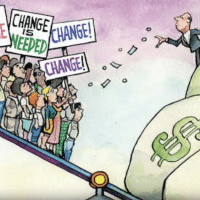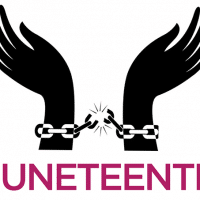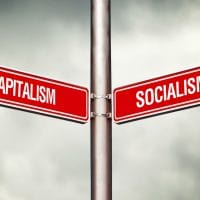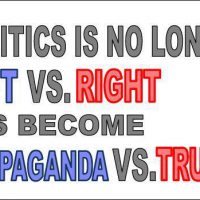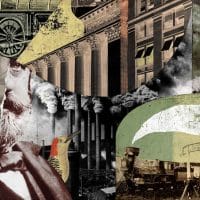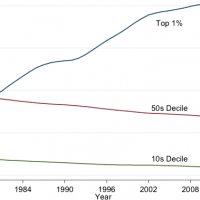-
The 2017 French Elections: A Grim Farce
The experience of the last three decades has clearly demonstrated that social struggles in and of themselves are not sufficient to stop the drift to the right and re-establish a dynamic of social advances. That requires going beyond defensive strategies and creating a positive alternative project that is authentically social and democratic.
-
Finance, Crisis, and Stagnation
In this presentation Mexie begins to elaborate the theory of monopoly capitalism developed by Paul Baran and Paul Sweezy, incorporating recent theoretical development by John Bellamy Foster and Robert McChesney. Mexie has produced a number of other videos on the topic as well.
-
Improving our quality of life will require rebuilding union strength
Unions provide workers with voice and the means to use their collective strength to gain job security and say over key aspects of their conditions of employment, including scheduling and safety. These gains are significant in our “employment at will” economy.
-
This new museum imagines a world where capitalism is dead
Visitors will be invited to reflect on capitalism as if looking back at it from a world in which capitalism is dead. “Much of the evidence of capitalism is either eroding over time or simply not known or easily accessible to the public,” the mission statement reads. “Our ambition is to connect and integrate these many efforts before the evidence is erased forever.”
-
York hosts international conference on “Marx’s Capital after 150 Years”
An international conference to mark the 150th anniversary of the first publication of Marx’s Capital was held May 24 to 26 at York University.
-
Juneteenth: Time for liberation now
Juneteenth is not just a day in the park. It memorializes the most significant event in African-American history, what W.E.B. Du Bois in the magnificent “Black Reconstruction in America, 1860-1880” calls “the coming of the Lord,” the destruction of slavery.
-
The general election in Great Britain
When it came to the general election in Britain, everything was settled in advance. The Conservative Party led by Theresa May was supposed to prevail. The Labour Party, victim of its own confusion, its refusal to support the will of millions of members and voters who wanted to put an end to the straitjacket of the European Union, was supposed to be trounced.
-
Politics of a parade
In a modern-day manifestation of the old colonial divide-and-rule tactic, corporations and New York City politicians, including the mayor, were recently caught trying to engage in backdoor deals to divide the city’s Puerto Rican community over a pro-Puerto Rican independence activist’s participation in the Puerto Rican Day Parade.
-
Britain’s Katrina moment could put radical left into power
After this week’s high-rise fire in West London—the most deadly British disaster in a generation—officials still have no idea exactly how many people were crammed into the dangerous, outdated public-housing block that stands in London’s richest borough.
-
Venezuela responds to Pence
Responding to the United States vice president’s recent statements that “democracy is undermined” in Venezuela, Venezuelan President Nicolas Maduro and Foreign Minister Delcy Rodriguez strongly rejected Pence’s claims.
The Bolivarian leaders denounced the plan to destabilize Venezuela as “imperialist,” saying that the “extremism” and “militarism” of the U.S is a “serious threat to humanity.”
-
José Carlos Mariátegui: 87 years later
Mariátegui’s funeral was one of the largest processions of workers ever seen in the streets of Lima, Peru, but in the U.S. his death was hardly noticed.
-
White phosphorus in Syria, Iraq
Photographs and video clips posted online on June 8 show blinding spots of light over the northern Syrian city of Raqqa. The pictures, distributed by the Amaq News Agency, which is linked to Daesh, and activist group Raqqa is Being Slaughtered Silently, show puffs of white light and smoke, which are signs of white phosphorous.
-
Rebuilding the American labor movement—the Southern front
The major contradiction for working people in the USA in the 21st century is now abundantly clear: while working for a living is a necessity for the majority of Americans and the wealth of the nation continues to grow, real wages and the number of decent jobs are in steady decline.
-
The political defeat of the Venezuelan right-wing
Foreign support to the Venezuelan right in the form of money, weapons, and propaganda is ongoing. Some oil corporations, such as Exxon Mobil, are directly involved in destabilization policies.
-
The need for a new U.S. foreign policy toward North Korea
USA-North Korean relations remain very tense even though the threat of a new Korean War has receded. Yet the U.S. government remains determined to tighten economic sanctions on North Korea and continues to plan for a military strike aimed at destroying the country’s nuclear infrastructure.
-
What is to constitute the new “yes” is the problem
For Klein, developing a meaningful anti-shock politics involves some combination of what Sanders represented and what Clinton symbolized: Sanders with respect to class and economics, Clinton as far as race and gender, and everything else. Imperialism and war scarcely enter the argument.
-
The worst of Donald Trump’s toxic agenda is lying in wait
The same theories of racial hierarchy that have been used historically to justify violent thefts in the name of building the industrial age are surging to the surface as the system of wealth and comfort they constructed starts to unravel on multiple fronts simultaneously. Trump is just one early and vicious manifestation of that unraveling. He is not alone. He won’t be the last.
-
Populism and ‘post truth’
Populism has emerged as the latest bad word in the liberal commentary on current politics in the West. The understanding is simple. Populist politicians are supposed to appeal to the ‘people’ and stoke their jealousy against those who are economically, socially and politically successful. Another word used in liberal discourse to identify extreme right wing is ‘post truth’, designated as the word of the year by Oxford Dictionaries. The implication is that popular opinion now is easily swayed by emotionally charged rhetoric and fake news having no factual basis. The claim that this is happening only now is odd.
-
The continental revolution
Between the end of the Civil War and the early 20th century, the United States underwent one of the most profound economic transformations that any country has ever experienced. In 1865, the United States lagged far behind Britain in manufacturing output; by 1900, it would surpass the totals of Britain, France, and Germany combined.
-
Globalization and executive compensation
Growing inequality has been one of the most salient features of the US economy over the last 40 years. A variety of explanations for this rapid growth in top incomes have been proposed, including growing firm size new technology, the market for superstars, poor governance, and changes in top tax rates.


